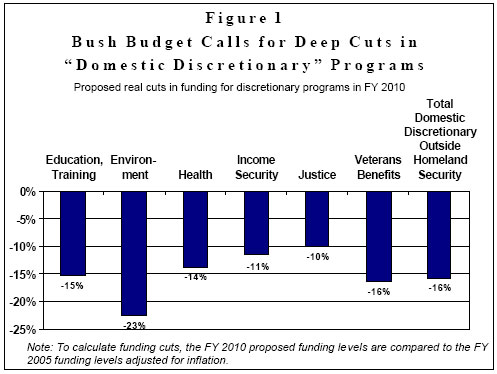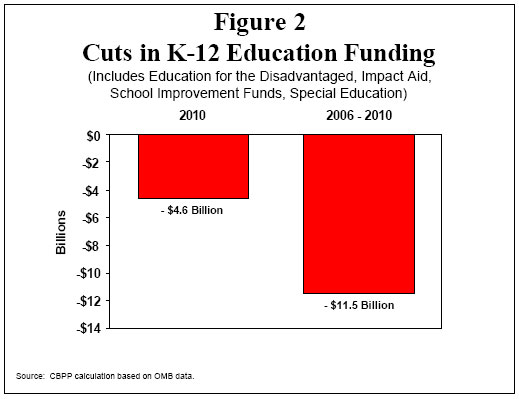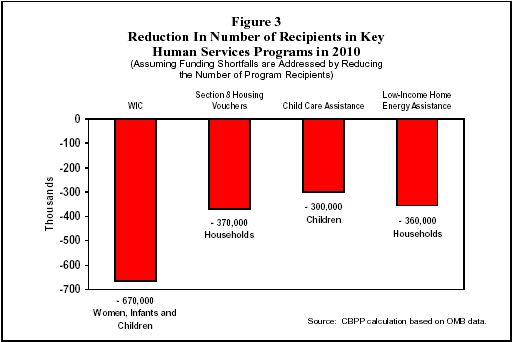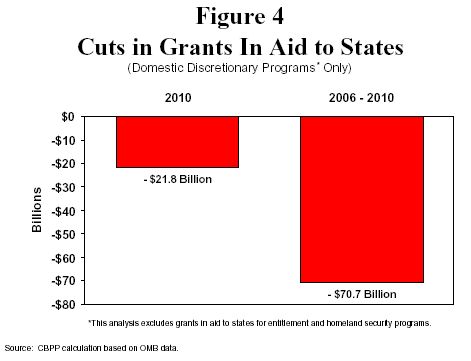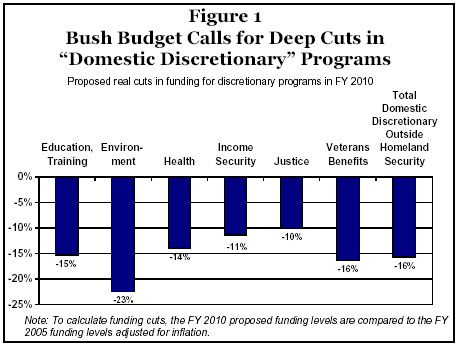Voting Rights: Despite promising to unite the nation and improve its election system, the President failed to act swiftly toward election reform.
•He did not provide leadership to ensure timely passage and swift implementation of the HelpAmerica Vote Act (HAVA) of 2002. Thus, Congress did not appropriate funds for electionreform until almost two years into his presidency.
•The administration seated the federal election reform oversight board 11 months behind schedule, resulting in delayed fund distribution to states. Consequently, states did not have the equipment, infrastructure, or guidance they needed to meet HAVA’s deadlines, including implementation of statewide voter registration databases, development of voter complaint procedures, and installation of new voting equipment.
Equal Educational Opportunity: Early in his administration, the President widely promoted an education reform proposal, the No Child Left Behind Act (NCLB), and garnered bipartisan support. Despite its worthy goals, however, NCLB has flaws that will inhibit equal educational opportunity and limit its ability to close the achievement gap.
•NCLB does not sufficiently address unequal education, a major barrier to closing the achievement gap between minority and white students.
•NCLB defers to states responsibility for defining achievement and adopting assessment measures. Educators fear that, unless there are safeguards in place, states will attach high stakes to tests, punishing students for the system’s failure to teach.
•Students, especially those who are minority, limited English proficient, low income, or have a disability, disproportionately attend schools that do not have the resources to provide necessary learning tools and, thus, are more likely to be identified as low performers and subject to sanctions.
•The lowest performing schools are also the poorest, amplifying the need for sufficient resources. However, President Bush has not aggressively pushed for increased funding, leaving NCLB underfunded every year except its first.
Affirmative Action: The President’s stance on affirmative action is equivocal at best. President Bush has tried to please both supporters and opponents, a tactic that has resulted in a misleading and vague position. He has not exhibited strong leadership on this issue where leadership is vital.
•In 2001, the administration asked the Supreme Court to dismiss a case challenging a Department of Transportation program for disadvantaged businesses. In announcing and discussing the case, it was clear that the administration was not basing its position on support for affirmative action, but procedural technicalities with the case.
•The administration later filed briefs with the Supreme Court challenging programs that allow race to be considered as one factor among many in college admissions decisions, discrediting existingcase law and arguing erroneously that this practice amounted to a quota.
•Instead of promoting affirmative action in federal contracting and education, the administration promotes “race neutral alternatives,” even though in some situations they are not applicable and in others not overly effective at maintaining diversity.
•President Bush frequently speaks about the importance of diversity and exhibits such a standard within his own Cabinet. However, his actions with respect to affirmative action are not in line with that professed commitment as he has undercut programs designed to achieve diversity.
Fair Housing: Policies instituted under the Bush administration have diminished housing opportunities for poor, disproportionately minority families.
•The President shifted resources away from rent assistance for the poor and toward home purchasing programs for minorities. Although a worthwhile effort, the President’s A Home ofYour Own program is hampered by insufficient funding to relieve the chronic affordable housing crisis...
Environmental Justice: The Environmental Protection Agency (EPA) under this administration,despite some attempts, has not always been successful in advancing the cause of environmental justice.
•Although it developed an action plan for ensuring environmental justice goals are met, the agency has not developed measures of accountability and progress.
•EPA has taken few actions to ensure that minority and low-income persons are not disparately affected by environmental contamination and has failed to develop a standard for assessing how exposure to hazards affects public health.
•EPA has de-emphasized the significance of minority and low-income populations in its environmental justice efforts.
•The administration has developed environmental proposals without adequate participation from minority populations, and has thus failed to consider the civil rights consequences of its actions.
Racial Profiling: Early in his term, President Bush promised to end racial profiling. Although he has not completely fulfilled that promise, he issued guidelines to prohibit racial profiling in federal law enforcement, an action unprecedented among U.S. Presidents. President Bush took other actions,however, that had negative effects.
•The administration responded to the September 11, 2001, terrorist attacks by instituting regulations that facilitate profiling rather than prevent it. Immigrants and visitors from Arab and Middle Eastern countries were subjected to increased scrutiny, including interviews, registration, and in some cases removal.
•Early on, some federal agencies denounced profiling in the performance of their agents’ routine duties, but the administration did not introduce governmentwide policies complete or comprehensive enough to have measurable positive effects after September 11.
•Commendably, two years later, the Department of Justice (DOJ) issued guidelines that prohibit federal agents from making enforcement decisions based on race or ethnicity. However, the guidelines contain a broad and loosely defined exception that permits race targeting if law enforcement alleges that individuals are suspected of posing a national security threat. This exception allows profiling in certain undefined circumstances and potentially gives cover to abusers.
Hate Crimes: The administration paid little attention to hate crimes until after September 11. Since then, the President’s words and actions have conveyed mixed messages.
•Immediately after the attacks, the administration declared that acts of violence and discrimination against Arab Americans, Muslims, and those perceived to be of Middle Eastern descent would not be tolerated. The executive branch launched a coordinated campaign to prevent hate crimes against such individuals.
•The administration did not sustain its strong rhetoric after September 11. Neither did President Bush support passage of the Local Law Enforcement Act, a proposal that would protect gay men and lesbians, and persons with disabilities from hate crimes.
•President Bush has further stated that “all violent crimes are crimes of hate,” a view which does not acknowledge the bias associated with such acts.
Immigrants: This report examines three administration immigration proposals or policies. All lack strong civil rights protections for immigrants.
•President Bush has made encouraging comments about the extension of rights to immigrant workers, but has not followed through with action. For example, he initially considered granting amnesty to approximately 3 million undocumented Mexican immigrants in 2001, but subsequently terminated his efforts. In January 2004, the President again proposed a temporary worker program for undocumented immigrants but has not pushed for its passage.
•President Bush has endorsed policies that allow discrimination against certain groups in the processing of asylum requests. For instance, on the unproven claim that Haitian refugees may threaten national security, President Bush granted authority to federal agents to hold them in detention indefinitely without bond until their cases are heard by an asylum court. The UnitedStates does not apply such policy to any other immigrant group.
•Following the terrorist attacks, the administration instituted policies that singled out immigrants from Middle Eastern and Muslim countries. The DOJ allowed local law enforcement to contact and question visitors, citizens, and other residents. It also detained witnesses on minor violations, held many in secret in harsh conditions, and did not inform them of charges against them. The administration limited available channels for legal entry and began requiring individuals from selected countries to register and submit fingerprints and photographs upon arrival.
Native Americans: President Bush has acknowledged the great debt America owes to Native Americans. However, his words have not been matched with action. Commission reports document that the President has not effectively used the stature of his office to speak out on ending discrimination against Native Americans. Nor has he engaged in a consistent effort to alleviate their problems. He has not applied resources to improving conditions or adequately funded programs that serve Native peoples. For example:
•President Bush has not requested sufficient funding for tribal colleges and universities, has proposed terminating $1.5 billion in funding for education programs that benefit Native Americans, and has not provided adequate resources to meet NCLB goals that apply to Indian Country.
•For 2004, the administration requested $3.6 billion for the Indian Health Service, the primary provider of Native American health care. This falls far short of the $19.4 billion in unmet health needs in Native communities.
•President Bush’s budget requests for housing programs have not approached the $1 billion required to meet the demand, and consequently, Native Americans have an immediate need for 210,000 housing units.
•In 2003, President Bush terminated funding for critical law enforcement programs, including the Tribal Drug Court Program. Experts agree that problems with the criminal justice system in Indian Country are serious and understated.
Women: President Bush’s record on women’s issues is mixed. Economic gains for which he has paved the way are overshadowed by other actions that have set back women’s rights. For example:
•The Bush administration closed the White House Office for Women’s Initiatives and Outreach and attempted to close the Women’s Bureau at the Department of Labor (DOL). It retreated amid objections from women’s groups.
•The administration withdrew Department of Education guidance on sexual harassment in schools from the Internet and ended distribution of information on workplace rights of women.
•President Bush attempted to redirect Title IX enforcement, but ceased his effort after overwhelming public expressions of support for the law.
•The administration commendably launched a plan to improve women’s access to capital by creating a Web site for women entrepreneurs and holding related conferences, but at the sametime abolished DOL’s Equal Pay Initiative.
Gay Men and Lesbians: President Bush appointed some gay rights supporters to Cabinet and administration positions. However, other actions he and his administration have taken have almost completely eclipsed the efforts he made. For example:
•In 2003, Attorney General John Ashcroft did not allow a Gay Pride Month celebration at DOJ, even though it had been an established program at the agency. He relented after protestations, but did not permit the use of agency funds, even though they are used for other heritage and history commemorations.
•President Bush opposes the Employment Non-Discrimination Act and Hate Crimes Prevention Act, both of which include protections for gay individuals.
•In 2004, the Office of Special Counsel removed documents pertaining to sexual orientation discrimination in the federal government from its Web site. Only after the action was publicized did the administration direct that the materials be re-posted.
•President Bush has stated unequivocal support for a constitutional amendment banning same-sex marriages. If passed, the amendment would be the first in U.S. history to limit rather than preserve and expand the rights of a group.
